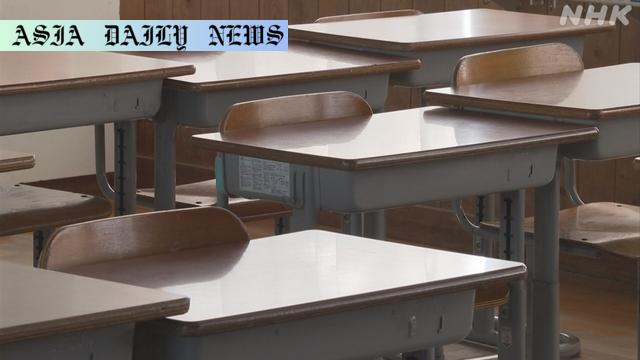Japanese-language support: Chiba officials plan to improve language assistance for over 3,300 foreign students through innovative techniques.
Chiba Prefecture will provide more Japanese-language support to foreign students struggling in schools.
Over 3,300 students require assistance—a number that’s tripled over a decade.
Officials plan online lessons, translation apps, and specialized curriculums to address the issue.
Chiba Governor emphasized the urgency of helping students adapt to school life quickly.

Introduction: A Growing Need for Language Support
The rise in the number of foreign students in Japan has presented significant challenges for the education system, particularly in regions like Chiba Prefecture. Located near Tokyo, Chiba has seen a dramatic increase in students requiring Japanese-language support. In the last decade, the number of such students has more than tripled, and as of May 2023, over 3,300 students struggle to grasp the language. For a smooth academic journey and social integration, this gap must be addressed immediately.
The Challenges Facing Schools and Authorities
Despite the growing demand, schools in Chiba Prefecture have faced difficulties in meeting these needs due to staffing shortages and resource limitations. Securing trained Japanese-language instructors has proven to be one of the biggest hurdles. Without adequate support, students face difficulties in keeping up with their peers, comprehending lessons, and adjusting to school environments, which can negatively affect their overall educational outcomes and mental well-being. The education system’s inability to provide language assistance in a timely manner highlights a critical issue that needs innovative solutions.
Chiba’s Multi-Pronged Approach to Address the Issue
To tackle these challenges head-on, Chiba Prefecture has rolled out a comprehensive plan. Starting this academic year, the local government will introduce online Japanese-language lessons designed to provide flexible learning opportunities for students. High schools are also implementing translation apps to assist students during lessons. Moreover, the authorities plan to develop a tailored curriculum in collaboration with support groups, ensuring a more customized and effective learning experience. This multifaceted approach aims to facilitate smoother adaptation and integration of foreign students into Japanese school life while fostering an inclusive learning environment.
Long-Term Benefits of Addressing Language Barriers
By prioritizing Japanese-language support, Chiba Prefecture is not only addressing an immediate educational need but also investing in the long-term social and economic integration of foreign residents. Language is key to building community connections, and early adaptation can help these students become active, contributing members of Japanese society. This initiative also sets a precedent for other regions facing similar challenges, showcasing how innovative solutions can create a more inclusive education system that benefits all.
Moving Forward: Collaborating for Greater Success
As Chiba embarks on this transformative journey, the collaboration between government officials, support groups, and educators will be crucial for ensuring its success. Monitoring the progress of implemented measures and gathering feedback from students and parents can further refine and optimize the strategy. If executed effectively, this plan has the potential to serve as a model for other prefectures across Japan, demonstrating how proactive measures can bridge gaps in the education system and create a supportive environment for all students.
Commentary
The Importance of Proactive Measures
Chiba Prefecture’s initiative to provide enhanced Japanese-language support is both timely and commendable. With over 3,300 foreign students struggling to adapt due to language barriers, this effort addresses a critical need in the education system. Taking proactive measures such as online lessons and introducing translation apps in schools reflects an understanding of modern tools’ potential to improve learning outcomes. It also demonstrates sensitivity toward creating an inclusive environment for all students, regardless of their linguistic background.
The Broader Implications for Society
Beyond the classroom, addressing language barriers in education has far-reaching implications for society as a whole. Language forms the basis for integration into any new culture, and ensuring students develop these skills will enable them to not only thrive academically but also integrate socially and contribute economically in the future. The initiative by Chiba Prefecture sends a strong signal about Japan’s commitment to embracing its increasingly multicultural society, which is an essential step in an era of globalization.
A Model for Broader Implementation
While Chiba’s effort is commendable, it also serves as a reminder of the broader challenges faced by other regions in Japan. By documenting the success and challenges of this program, Chiba Prefecture has the opportunity to become a model for other areas dealing with similar issues. Creating a framework for collaboration between local governments, educators, and organizations could standardize and scale solutions, ensuring no student feels left behind due to limited Japanese proficiency.
Conclusion: An Optimistic Path Forward
In conclusion, Chiba’s plan to enhance Japanese-language support stands out as an essential step toward addressing educational inequities faced by foreign students. This initiative, if executed effectively, could foster not only academic success but also broader cultural integration, benefiting both individuals and society. It is a heartening reminder of how innovative solutions tailored to specific needs can bring about transformative change. Moving forward, collaboration and determination will be key to achieving these goals.


